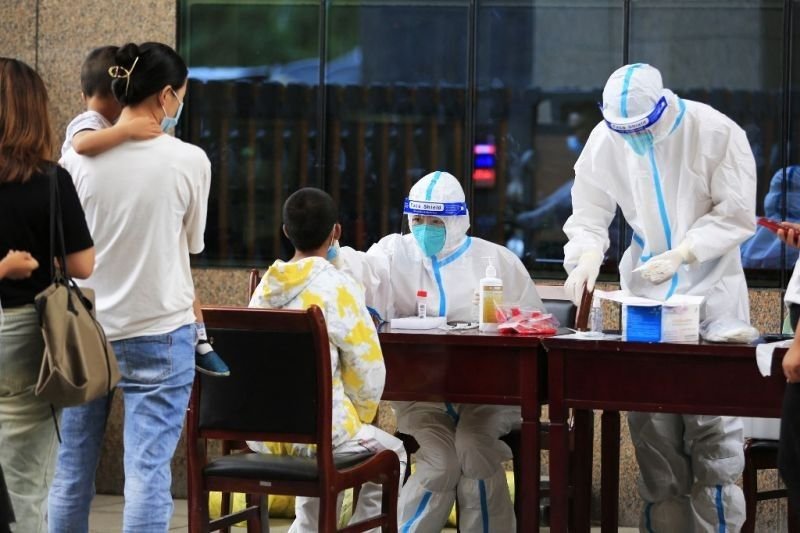New Delhi, 18 June 2025: Thailand, long a beacon for global tourism, is grappling with a renewed COVID‑19 surge in 2025, prompting public health alarms. With over 4.76 lakh confirmed cases already this year and daily infections climbing sharply, experts are strongly urging travelers to reconsider or tread with extreme caution before visiting the Land of Smiles.
Alarming Spike in New Cases and Deaths
Between May 24 and June 14, Thailand recorded a staggering 76,161 new COVID‑19 cases alongside 40 deaths. The nation’s overall tally for 2025 now stands at 476,584 infections and 154 deaths. Hospitalizations are high: 72,166 patients admitted in that period, while around 4,000 received outpatient care. These figures mark a significant uptick and highlight the virus’s persistent grip on the country.
Geographic Spread and Vulnerable Age Groups
Bangkok remains the epicenter, with 17,945 new cases between May 24 and June 14. Provincial hotspots include Chon Buri (3,315), Nakhon Ratchasima (3,027), Chiang Mai (2,678), and Rayong (1,775). Age-wise, those 60 and above accounted for 14,757 cases, with working-age adults, especially those aged 20–39, also severely impacted—evidence of COVID penetrating broad segments of the population.
Variant Concerns: New Omicron Subtypes on the Rise
Authorities have detected growing circulation of Omicron sub-variants like NB.1.8.1 and LF.7 across Thailand, Singapore, Hong Kong, and India. NB.1.8.1, in particular, is classified by WHO as a “variant under monitoring,” thanks to its enhanced transmissibility. While not necessarily causing more severe disease, it spreads more easily, accentuating outbreak risks. Public health officials warn these sub-variants could further fuel the rise in cases, even as the peak may have passed.
Testing Times: Is Thailand’s Outbreak Over the Hump?
Thailand’s Health Minister has recently stated that the country’s COVID‑19 surge for 2025 has likely peaked and may decline. Weekly case numbers—over 65,000 in late May—remain high, and the rainy season may prolong virus circulation. Authorities stress that vulnerable populations, including the elderly and immunocompromised, should remain vigilant and continue protective practices, even as case numbers edge downward.
Travel Advisory: Precautions for Visitors
Authorities and health experts recommend that travelers:
- Wear high-quality masks in crowded, enclosed spaces like airports, malls, trains and markets.
- Maintain rigorous hand hygiene, carrying sanitizer and following frequent washing.
- Prefer outdoor activities, avoid busy indoor venues, and use contactless payments.
- Stay updated on boosters, particularly for elderly individuals or those with chronic conditions.
- Monitor local guidelines and be prepared for testing or isolation requirements upon arrival or during travel.
Asia-Wide Resurgence: A Regional Concern
Thailand’s current situation mirrors a wider resurgence across Southeast Asia. Singapore, Hong Kong, and India are reporting rising cases tied to similar new variants. Health authorities in these regions are revising protocols, such as symptom-based isolation and booster campaigns, highlighting cross-border dimensions of the outbreak.
Changing Public Health Protocols
Several countries have updated their COVID-19 guidelines in response to the resurgence. Instead of fixed isolation periods, the focus now lies on isolating from symptom onset and ensuring three fever-free days before ending isolation, with mask use continuing afterward. Rapid antigen testing on days 3‑5 post-exposure is recommended. Moreover, high-risk groups are being urged to take boosters and adhere to stricter hygiene and distancing protocols.
Impact on Thailand’s Tourism Sector
Thailand’s tourism industry, which rebounded to welcome 35 million visitors in 2024, is facing another test. Though no travel restrictions or quarantine mandates are in place, rising infection counts are likely to dampen traveler confidence. With tourism contributing nearly 9% to GDP pre-pandemic, another dip in visitor numbers may significantly affect economic recovery.
Despite the uptick, Thailand’s healthcare infrastructure has shown resilience. Hospitals report adequate staffing and medication supplies to manage new admissions. The government is also preparing for influenza vaccination campaigns alongside COVID booster outreach.
Travelers heading to Thailand in mid‑2025 face a risky landscape: rising cases, circulating variants, and shifting advisories. While travel continues to be allowed, health experts strongly recommend that high-risk individuals reconsider non-essential visits. Those traveling should strictly follow mask mandates, maintain hygiene, avoid indoor crowds, and keep boosters up to date.
For many, delaying travel or seeking destinations with lower risk may be the safer choice until the surge subsides and case numbers truly begin a sustained descent.






